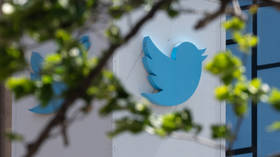
The billionaire has cashed out nearly $8 billion worth of shares after buying Twitter, according to regulatory filings

© Getty Images / Raymond Hall
Elon Musk has sold another 22 million shares in his electric car company Tesla this week, according to filings published by the US Securities and Exchange Commission (SEC) on Thursday.
The stock sale was worth $3.6 billion, bringing Musk’s total Tesla stock off-load this year near $40 billion. The billionaire’s stake in the carmaker now amounts to about 13.4% from around 17% a year ago, according to Refinitiv data.
This week’s sale is the second big piece of stock Musk has dumped since his $44-billion purchase of social media platform Twitter in October. Last month, he sold 19.5 million of his shares for $3.95 billion. Tesla investors are worried that Musk seems to be putting Twitter ahead of Tesla on his list of priorities, especially since the carmaker’s shares are trading at two-year lows.
“It doesn’t put a lot of confidence in the business, or speak volumes for where his attention is at. It’s not a good situation. I’ve spoken to a lot of investors who have Tesla shares and they’re absolutely furious at Elon,” Tony Sycamore, an analyst at IG Markets brokerage, told Reuters.
Analysts have previously warned that Musk might sell additional Tesla shares to finance the Twitter deal. Despite initially planning to finance the takeover himself, he ended up securing some $20 billion from investors and banks.

While the acquisition was costly, keeping Twitter afloat may prove even more so. Amid reforms Musk launched on the platform and within its staff immediately after the purchase, Twitter lost a lion’s share of advertisers, which form its major source of income, due to concerns that it would become a poor place for brand image. Some of the advertisers have reportedly returned, including Apple and Amazon, but the platform was losing $4 million a day in November, according to Musk. Insider Intelligence market research firm predicted earlier this week that Twitter’s revenue growth will be flat for the next two years due to revenue and staffing losses.
For more stories on economy & finance visit RT’s business section




